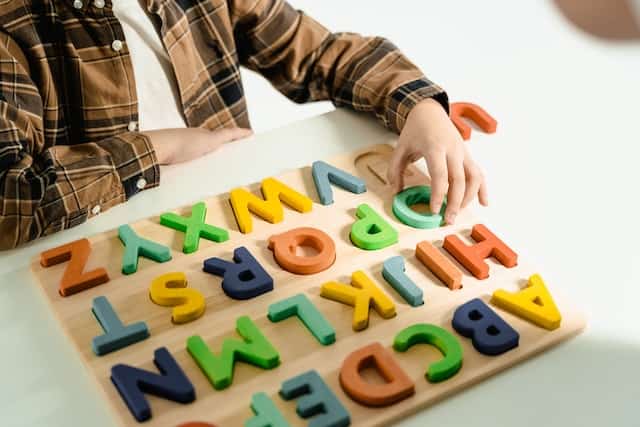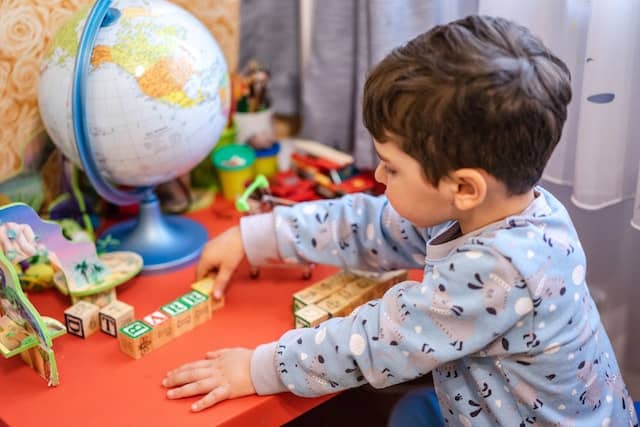Early literacy skills are essential for the development of children's cognitive abilities and language proficiency.
As parents and teachers, we play a crucial role in laying the foundation for our children's writing and reading skills.
It is not only about fostering a love for books but also about honing skills that our kids will use for years to come.
So, in this article, we will explore some effective strategies to improve early literacy skills for preschoolers.

What is Early Literacy?
Early literacy refers to the knowledge and skills that children acquire about communication, language (verbal and non-verbal), reading, and writing before they can actually read and write.
Research has shown that early literacy begins to develop from the moment children are born.
While preschoolers may seem too young to start learning these skills, it is still critical because it lays the foundation for later reading and writing success, which are essential skills for academic and personal growth.
By developing early literacy skills, children can not only become better readers and writers but also gain confidence and curiosity about the world around them.
How to Improve Early Literacy Skills for Preschoolers?
Here are some tips to boost early literacy for preschoolers:
1. Start by Reading to Your Child Daily
Improving early literacy skills for preschoolers is an important step in preparing them for academic success. One simple but effective way to start this process is by reading to your child regularly in everyday activities.
Reading aloud to your child has a multitude of benefits, such as increasing oral vocabulary, improving comprehension, and stimulating imagination.
Children who read regularly also develop a love for reading, which can encourage independent reading later in life. Furthermore, reading together becomes a bonding experience for both parent and child.
In order to maximize the benefits of reading, it’s important to select their favorite books, like alphabet books, that are appropriate for your child’s age and interests, and take the time to engage in discussion and ask questions about the story.
Regular reading to your preschooler is a small investment that can lead to big returns in their academic and personal growth.
Another approach is to incorporate writing activities into daily routines, such as drawing and scribbling. This helps children build fine motor skills and develop their own ideas.
Moreover, parents and educators can use interactive tools, such as apps and board games, to keep kids engaged and motivated. These tools offer a fun and exciting way to learn new concepts and reinforce existing skills.
2. Encourage Your Child to Ask Questions about the Story
Encouraging a child to ask questions about a story is a crucial aspect of improving early literacy skills for preschoolers.
When children ask questions, they are not only engaging with the story but actively seeking a deeper understanding of the text. This helps develop critical thinking skills and improves reading comprehension.
Asking open-ended questions also encourages children to think creatively, fostering a love for reading and a desire to learn. For parents and educators, it is important to create a literacy environment where children feel comfortable asking questions and to provide opportunities for discussion and exploration.
Encouraging questions can also lead to further learning opportunities, such as researching topics of interest or exploring new vocabulary.
Overall, incorporating questioning into the reading experience is an effective way to enhance early literacy skills and promote a lifelong love of learning.
3. Play Letter and Sound Recognition Games
Playing letter and sound recognition games is an effective way to improve early literacy skills for preschoolers.
These games help children develop an understanding of letters and the sounds they make, which is essential for reading and writing.
Some examples of letter and sound recognition games include using magnetic letters to spell out words or playing a matching game where children match letters to corresponding pictures.
Another game is to call out a letter and have the child identify an object in the room that begins with that sound. These games make learning fun and engaging, encouraging children to practice their literacy skills outside of traditional learning environments.
By incorporating these activities into regular playtime, parents, and caregivers can enhance preschoolers' early literacy development and set them up for success in the classroom and beyond.
4. Practice Writing Letters and Simple Words
Developing strong literacy skills is critical for a child's academic success. However, for preschoolers, the journey toward achieving literacy can be daunting.
As such, parents and caretakers are always seeking new ways to help young children enhance their language and literacy skills. One way to achieve this is to encourage preschoolers to practice writing letters and simple words.
This practice can help children familiarize themselves with the alphabet knowledge and improve their motor skills.
By tracing letters or writing their names, children begin to connect sounds with their written forms, thereby improving their phonemic awareness.
Additionally, practicing writing simple words can foster early oral vocabulary growth and help children develop basic spelling skills. As a result, children can lay a strong foundation that is vital when it comes to mastering communication and language throughout their lives.
5. Use Rhymes to Help Your Child Learn New Words and Sounds
One effective strategy for improving early literacy skills for preschoolers is to use rhymes in every classroom activity.
Children are naturally drawn to rhythm, and incorporating this element into learning can make the process more engaging and enjoyable.
Reciting rhymes can help children learn new words and sounds, improve their memory, and develop their phonological awareness.
For example, repetitive rhymes can help children recognize and remember sounds and syllables in words, such as "cat" and "hat."
Additionally, rhymes can help children develop their oral language skills by providing opportunities for them to practice speaking and listening.

Final Thoughts
Building early literacy skills in preschoolers is a crucial foundation for their future academic success.
By engaging in these literacy activities, parents and educators can help children establish a strong base of literacy skills. Making reading an enjoyable and interactive experience can go a long way in fostering a lifelong love of learning for these young learners.
So, it's never too early to start laying the groundwork for a rich literary future.
Cudy helps connect tutors, students, and parents to conduct and schedule online lessons anytime and anywhere. Join Cudy and subscribe to our blog for many study tips and more!
FAQs
How do you develop literacy skills in early childhood?
Some tips to help boost these skills include communicating with children, reading, and playing with rhyme or focusing on developing children's oral language skills.
How to make book reading fun for children?
Some ideas include reading aloud to your children, taking them on book-related outings, and incorporating reading into their daily routines.
What are the stages of early literacy development?
There are five stages of early literacy development, including emergent literacy, alphabetic fluency, words and patterns, intermediate reading, and advanced reading.
When should parents seek professional help for their child’s reading difficulties?
Parents should seek professional help for their child's reading difficulties if they notice that the child's reading difficulties are affecting their academic performance and overall well-being.
What are some common causes of early literacy struggles?
There are many causes of early literacy struggles. Some common causes are biologically based risk factors, difficulty pronouncing words, not being able to read quickly, and difficulty understanding what is read.






